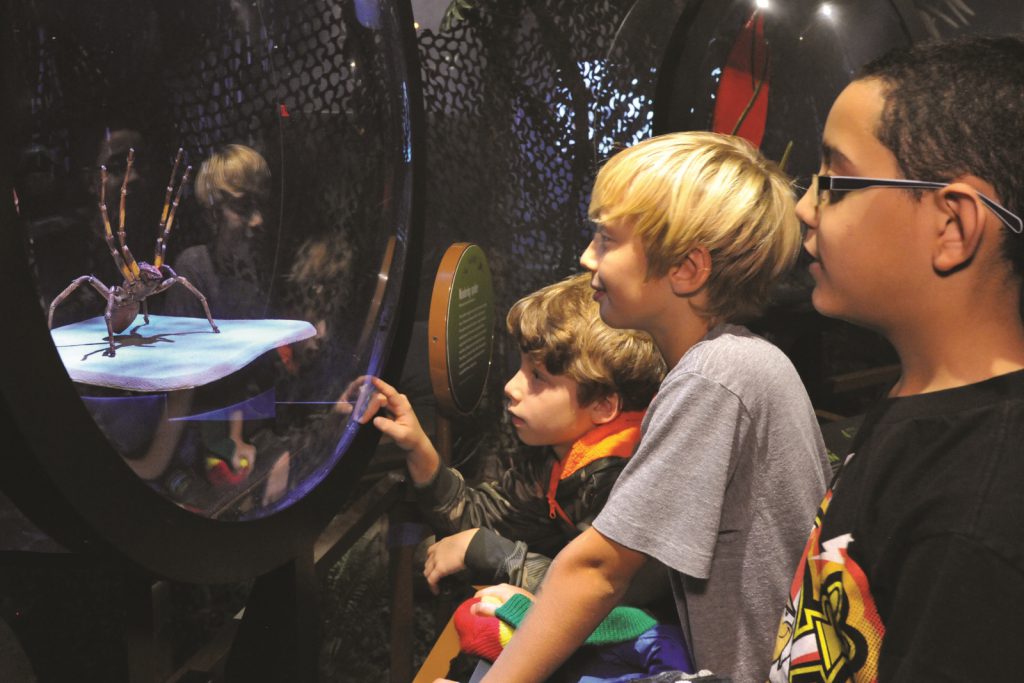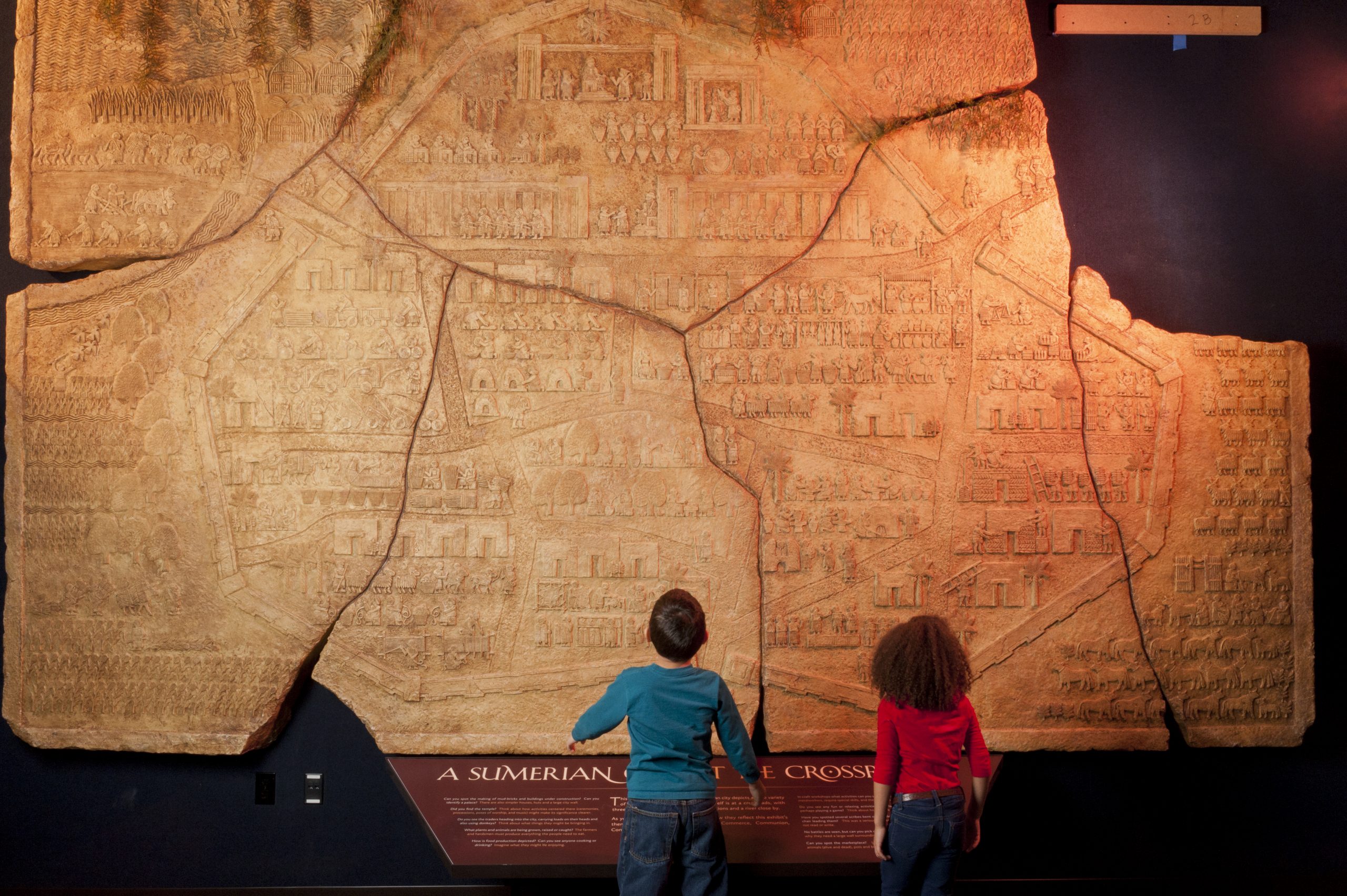Toxin or Tonic? The Power of Poison Opens March 2 at the Milwaukee Public Museum
Limited Engagement: March 2 – July 7, 2019
The Milwaukee Public Museum (MPM) will host The Power of Poison, an exhibition organized by the American Museum of Natural History (AMNH) that tells the toxic tale of poison.
“MPM is very excited to host The Power of Poison,” said Julia Colby, Zoologist, Milwaukee Public Museum. “Most of our traveling exhibits center on either human or natural history, but The Power of Poison tackles both science and culture. There’s both fact and magic in this exhibit, and like a visit to the Museum itself, there’s something everyone will love whether you’re adult or child, citizen scientist or pop-culture junkie.”
Journey through nature and myth to discover how toxins and venoms can be used for good and evil, and uncover why people remain captivated with poisonous myths and legends to this day.
Exhibit Highlights
Poison in Nature: While plants produce toxins primarily to protect against being eaten, animals make poison mostly to deter predators and capture prey. Visitors will get the chance to explore Colombia’s Chocó forest to find out how plants and animals have evolved to use poisons to survive.
Poison in Myth and Legend: Poison has been a theme in pop culture throughout history. Learn about the venoms and toxins in tales like Harry Potter, Snow White, and Macbeth. Visit the enchanted book to uncover poisonous plant species, their effects and antidotes, and how they were used in myths and real life.
Detecting Poisons: The source of disease and cause of death has been mysterious for most of human history, especially if poison was involved. Play detective and help solve puzzling cases of accidental poisoning throughout history.
Poison for Good: Discover what species of plant and animal toxins are studied as potential ingredients to become life-saving new drugs. Did you know that vampire bats’ saliva contains an anticlotting agent called draculin, which could protect stroke patients from blood clots in the brain? Or that a component of Gila monster venom, which was found to stimulate insulin production and lower blood sugar levels, is now being used in a treatment for diabetes?
Villains and Victims: Uncover how history’s most famous poisoners deployed their wickedness in the world’s most well-known poisonings.
Poison Programming
Fun for All Ages: Adults and children alike will enjoy visiting with our educators and discovering toxic taxidermy, poisonous plant-based products and dinosaur-age venoms. Programming will be available on various dates and time.
Lectures: Join us in April for Science on Tap to explore the toxins found in popular legends, books, films and TV shows with Dr. Mark Siddall, Curator in the American Museum of Natural History’s Division of Invertebrate Zoology; or discover how reported deaths alert researchers to new sightings of the extremely poisonous “Death Cap” mushroom with UW-Madison’s Dr. Anne Pringle at Lunch & Lecture.
Tours: What poisons are hidden in MPM’s permanent collections? Learn about radioactive jewelry, venom as a medicine and medieval antidotes on the Hidden MPM: Toxin Tour on Saturdays at 11 a.m.
Adults Only: Venture onto a poisonous path of your own choosing at Pick Your Poison on May 17. Experience all three exhibits floors, including The Power of Poison exhibit. Each path will take you on a journey where you’ll sample food and drink with poisonous connections and meet MPM experts who will tell you toxic tales about items in our collections.
Visitor Information
The Power of Poison will be open to the public at MPM from March 2 through July 7, 2019. Tickets are currently available for purchase by visiting www.mpm.edu/posion or by calling 414-278-2728. Admission to The Power of Poison includes admission to MPM’s permanent exhibits and one Planetarium program in the Dome Theater: $21 adults, $17 seniors (65+) and $15 youth (4-13). Children under 3 are free.
MPM members will have the opportunity to see the exhibition on Friday, March 1, before it opens to the public, for free. Reservations are required and can be made at 414-278-6170 or 888-700-9069. Members can purchase tickets for a special rate of $3 per ticket throughout its public run. For more information on how to become a MPM member, visit http://www.mpm.edu/membership.
Exhibition Organization
The Power of Poison is organized by the American Museum of Natural History, New York (amnh.org).
About the Milwaukee Public Museum (mpm.edu)
The Milwaukee Public Museum is a natural and human history museum located in downtown Milwaukee, Wisconsin. The Museum was chartered in 1882 and opened to the public in 1884. MPM has three floors of exhibits that encompass life-size dioramas, walk-through villages, world cultures, dinosaurs, a rainforest, and a live butterfly garden as well as the Daniel M. Soref Dome Theater & Planetarium. The Museum houses more than 4 million objects and hosts some half a million visitors each year.
MPM is operated by Milwaukee Public Museum, Inc., a private, non-profit company, and its facilities and collections are held in trust and supported by Milwaukee County for the benefit of the public.
About the American Museum of Natural History (amnh.org)
The American Museum of Natural History, founded in 1869, is one of the world’s preeminent scientific, educational, and cultural institutions. The Museum encompasses 45 permanent exhibition halls, including those in the Rose Center for Earth and Space and the Hayden Planetarium, as well as galleries for temporary exhibitions. It is home to the Theodore Roosevelt Memorial, New York State’s official memorial to its 33rd governor and the nation’s 26th president, and a tribute to Roosevelt’s enduring legacy of conservation. The Museum’s five active research divisions and three cross-disciplinary centers support approximately 200 scientists, whose work draws on a world-class permanent collection of more than 34 million specimens and artifacts, as well as on specialized collections for frozen tissue and genomic and astrophysical data and on one of the largest natural history libraries in the world. Through its Richard Gilder Graduate School, it is the only American museum authorized to grant the Ph.D. degree and also to grant the Master of Arts in Teaching degree. Annual visitation has grown to approximately 5 million, and the Museum’s exhibitions and Space Shows are seen by millions more in venues on six continents. The Museum’s website, mobile apps, and massive open online courses (MOOCs) extend its scientific research and collections, exhibitions, and educational programs to additional audiences around the globe. Visit amnh.org for more information.
NOTE: This press release was submitted to Urban Milwaukee and was not written by an Urban Milwaukee writer. While it is believed to be reliable, Urban Milwaukee does not guarantee its accuracy or completeness.
Recent Press Releases by Milwaukee Public Museum
Milwaukee Public Museum Kicks Off Final Year with First of Five “Greatest Hits” Exhibit Celebrations: Ancient Civilizations
Jan 6th, 2026 by Milwaukee Public MuseumJanuary 10-February 14, 2026
Milwaukee Public Museum Announces Current Building will be Open for all of 2026 Ahead of Move to New Museum
Nov 18th, 2025 by Milwaukee Public MuseumFinal year will feature “Greatest Hits” celebration of Museum’s iconic exhibits





















